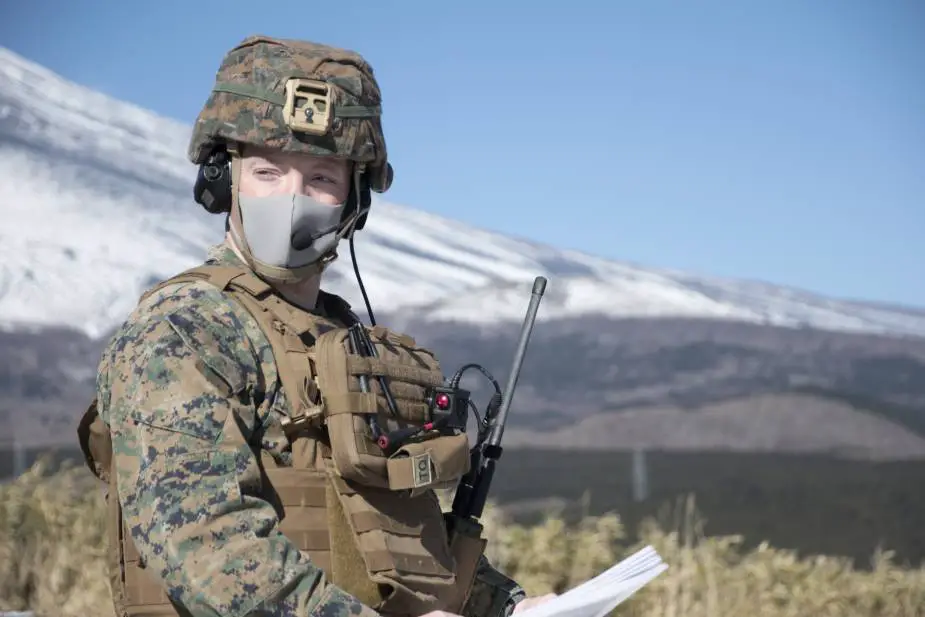Breaking news
US Marine Corps CATC Camp Fuji oversees successful first time fixed wing close air support training.
U.S. Marines from 1st Battalion, 2nd Marines, coordinated fixed wing close air support at Combined Arms Training Center Camp Fuji, Japan, successfully dropping 12 inert Mk76s from F-18 Super Hornets, a first in recent history for the installation, January 14. Katie Gray, Marine Corps Installations Pacific, reports.
Follow Army Recognition on Google News at this link

A U.S. Marine relays information to onlookers while observing fixed wing close air support training at Combined Arms Training Center Camp Fuji, Japan, Jan. 14 (Picture source: U.S. Marine Corps/Katie Gray)
Close air support is any aviation-delivered use of weapon systems, or fires, in close enough proximity to friendly ground forces that requires detailed integration and careful coordination between pilots and forward air controllers stationed on the ground.
While the inert Mk76s may not have looked particularly impressive landing in a grassy target area, it’s a major landmark for the training installation, added Col. Robert Bodisch, Combined Arms Training Center Camp Fuji commander : “Being able to conduct close air support at Camp Fuji provides realistic combined arms support to infantry training,” he said.
The CAS event was another step towards the Commandant’s Force Design 2030 transformation and planned advancement of CATC Camp Fuji towards an Expeditionary Advanced Base Operations Center of Excellence. By successfully completing the drop, installation leadership and training personnel hope it will showcase the training center’s capabilities, not just for U.S. Forces Japan but for possible future joint and bilateral exercises aimed at strengthening alliances for a free and open Indo-Pacific.
Capt. Mark Herber, forward air controller with 1st Battalion, 2nd Marines, was largely instrumental in coordinating the event which had been delayed for several months for various factors.
Also included in the training were the F-18 Super Hornets from Marine Fighter Attack Squadron 312 KC-130s from Marine Aerial Refueler Transport Squadron 152 for refuel assistance, and 3rd Battalion, 8th Marines.
A V-22 Osprey pilot by training, Capt. Herber said he recognized the value of such training to future units because it furthers Marine Air Ground Task Force training, which requires units to prepare for operations in complex, joint, and multinational environments against a variety of threats : “One of the biggest tools the Marine Corps trains to and keeps in our toolbox is combined arms; the ability to put different types of fire and different force on the enemy to allow us to accomplish our mission," he said. “So the fact that we were able to employ ordnance off of a Marine Corps fixed wing aircraft was a big step towards making that a regular thing.”
Japan Ground Self Defense Force Maj. Gen. Shinichi Aoki, JGSDF Fuji Schools deputy commander was one of the observers of the event, the first time a Japanese Self Defense Force General Officer has observed such training at CATC Camp Fuji.
Capt. Herber noted that as a first time event at CATC Camp Fuji, ensuring the safety of the event was paramount, as well as being able to showcase this type of training to the Japan Ground Self Defense Force.
“CAS is something that we train to in the Marine Corps and it’s a routine event to us, but to make it happen here and the chance to do it front of a representative… that’s pretty awesome to be a part of.”



















